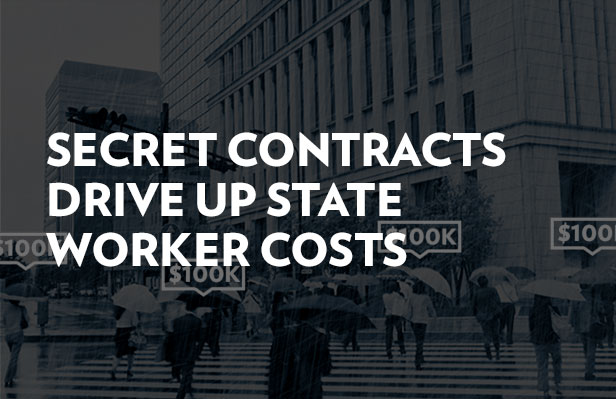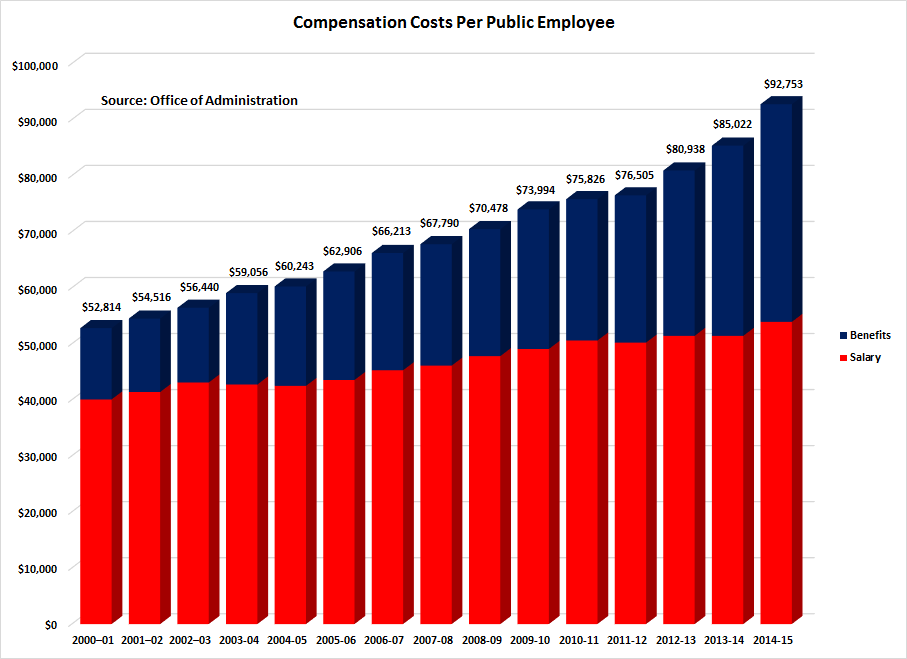Media

Addressing the Confusion on Compensation
Yesterday we issued a press release on public employee compensation, which is now causing quite a stir on social media. One commenter accused us of engaging in “shenanigans.” Another wanted us to “quit crying about what people make,” and a few politely questioned the validity of our figures.
To summarize the critics’ arguments: they do not believe the average cost of public employees’ compensation is nearly $93,000 per worker. As they point out, many state workers make less than $93,000 a year. This is true. However, the Office of Administration does not calculate the cost of compensation (page 18) on an individual basis. The $93,000 figure is an average and is not applicable to the every one of the 80,000 employees working for the state.
An employee’s compensation can vary based on the department he or she works in. For example, the average salary for an employee in the State Police is $74,725. In contrast, the average salary for a human services employee is $47,606. Union membership is another factor determining compensation. Employees who belong to AFSCME can expect $76,780 in compensation whereas SEIU members can expect to earn about $10,000 more in compensation over the same year.
Indeed, none of this challenges our central point: the cost of employee compensation—determined by contracts negotiated in secret—is rising dramatically. If ignored the costs will continue to climb, further burdening private sector workers who will be required to pay for exceedingly generous compensation packages.
One final point is in response to a criticism not mentioned above. Detractors claimed our post was a misplaced attack on state employees and evidence that we are not concerned about people making a living wage—a completely unfair representation of our position. Our goal is to make Pennsylvania a more prosperous place to live for everyone.
Yet, this goal is impossible to meet if we continue to sanction the unsustainable growth of government. Increasing taxes on working people in the private sector to pay for government spending will only hinder the state’s economic progress and prevent Pennsylvania from becoming a place where people want to live and work.
